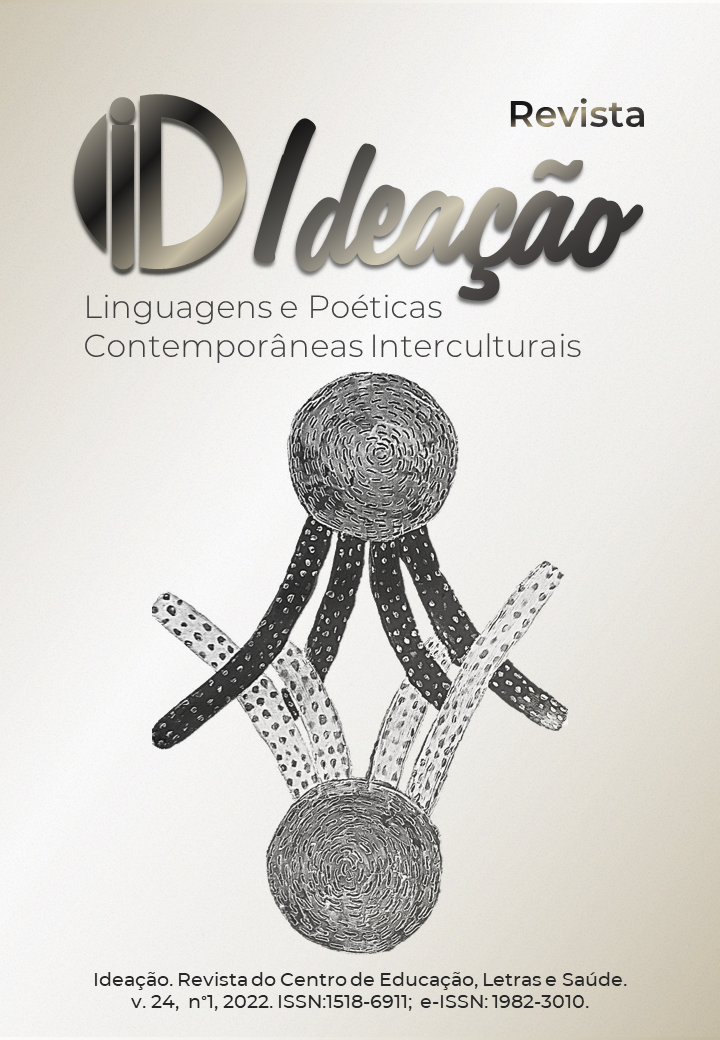Poesia e filosofia
reverberações temáticas na poesia de geraldo carneiro
DOI:
https://doi.org/10.48075/ri.v24i2.29044Palavras-chave:
Poesia e filosofia, Platão, Geraldo CarneiroResumo
Apesar de séculos de separação entre a poesia contemporânea e o famoso episódio da querela entre poesia e filosofia proporcionado por Platão no livro A República, com a expulsão dos poetas da polis, as temáticas presentes na disputa não deixam de fazer parte do arcabouço de assuntos da poesia. Geraldo Carneiro, autor brasileiro contemporâneo, nos poemas analisados, toma pontos da antiga querela, como a questão da verdade e do lugar do poeta, a fim de reformulá-los sob uma nova perspectiva, a do poeta no contexto da nossa contemporaneidade. Para analisar como Carneiro faz uso dessas referências, o corpo do trabalho é divido em duas partes, a contextualização da reivindicação de autoridade na educação da polis pela filosofia, proporcionada por Platão e seus argumentos para o deslocamento do lugar do poeta, e, no segundo momento, a análise de três poemas do poeta brasileiro, que se apropria das temáticas em tom irônico. De cunho bibliográfico, a pesquisa utilizou como principais referenciais teóricos A República de Platão, Poética de Aristóteles e Os mestres da Verdade na Grécia arcaica, de Marcel Detienne, e, como corpus, o livro Poemas Reunidos (2010), de Geraldo Carneiro.
Downloads
Publicado
Como Citar
Edição
Seção
Licença
Copyright (c) 2022 Direitos partilhados conforme licença CC BY-NC-SA 4.0

Este trabalho está licenciado sob uma licença Creative Commons Attribution-NonCommercial-ShareAlike 4.0 International License.
Política para Periódicos de Acesso Livre
Autores que publicam nesta revista concordam com os seguintes termos:
1. Autores mantém os direitos autorais e concedem à revista o direito de primeira publicação, com o trabalho simultaneamente licenciado sob a Licença Creative Commons Attribution que permite o compartilhamento do trabalho com reconhecimento da autoria e publicação inicial nesta revista.
2. Autores têm autorização para assumir contratos adicionais separadamente, para distribuição não-exclusiva da versão do trabalho publicada nesta revista (ex.: publicar em repositório institucional ou como capítulo de livro), com reconhecimento de autoria e publicação inicial nesta revista.
3. Autores têm permissão e são estimulados a publicar e distribuir seu trabalho online (ex.: em repositórios institucionais ou na sua página pessoal) a qualquer ponto antes ou durante o processo editorial, já que isso pode gerar alterações produtivas, bem como aumentar o impacto e a citação do trabalho publicado (Veja O Efeito do Acesso Livre).
Licença Creative Commons
Esta obra está licenciada com uma Licença Creative Commons Atribuição-NãoComercial-CompartilhaIgual 4.0 Internacional, o que permite compartilhar, copiar, distribuir, exibir, reproduzir, a totalidade ou partes desde que não tenha objetivo comercial e sejam citados os autores e a fonte.


